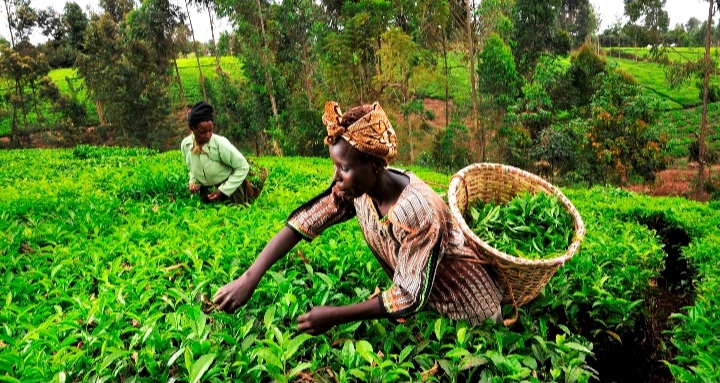Stakeholders Converge to Address Climate Change Impacts on Nutrition, Food Security in Nigeria

Experts and practitioners from various sectors have emphasized the significant and direct effects of climate change on food insecurity.
As global temperatures rise, shifts in weather patterns, extreme weather events, and environmental disruptions make food production increasingly challenging and unpredictable. Recognizing the urgency of addressing the intrinsic link between climate change and nutrition, Nigeria Health Watch organized a policy dialogue in Abuja titled “Strengthening Nutrition Outcomes in the Face of Climate Change.”
The conference, jointly organized recently, by the Ministry of Foreign and Diaspora Affairs and the German Federal Foreign Office, brought together stakeholders from federal ministries, development agencies,
and other sectors to discuss the impact of climate change on nutrition. The theme of the dialogue was “Understanding the Link
between Climate Change and Nutrition Outcomes.”
Hunger and poor nutrition contribute to nearly half of all deaths in children under five globally, with Nigeria experiencing one in 10 child deaths from hunger before the age of five.
Approximately 25 million people in Nigeria are at risk of food insecurity. Climate
change poses a significant challenge to achieving Sustainable Development Goals (SDGs) related to Zero Hunger and Good Health and Well-being, as food production heavily relies on climatic factors.
Vivianne Ihekweazu, Managing Director of Nigeria Health Watch, emphasized the dangers of overlooking the impact of climate change on health, well-being, and nutrition outcomes.
She highlighted the pressing global issue of hunger and poor nutrition and stressed that
climate change compounds the challenges in achieving the SDGs.
Ihekweazu underscored the importance of partnerships and collaboration in improving nutrition outcomes and driving overall economic development.
The conference addressed the potential disruptions climate change can cause to agricultural productivity, ecosystems, and food production systems.
Chief John Uruakpa, Director and Head of Prevention and Control of Micronutrient Deficiency at the Federal Ministry of Health,
expressed concern about the worsening prevalence of food insecurity and malnutrition as climate change unfolds in Nigeria and Africa at large.
He emphasized the Nigerian government’s commitment to addressing the impact of climate change through the National Climate Change Act.
Discussions during the conference centered on creating a supportive framework that integrates climate change, food security, and nutrition policies.
Panelists, representing developmental agencies and non-profit organizations focused on nutrition and food security,
highlighted the importance of innovative financing mechanisms, such as public-private partnerships and climate finance opportunities, to mobilize resources for climate change adaptation and nutrition
interventions.
The interconnectedness of water, sanitation, and hygiene (WASH) with climate change and nutrition was also addressed. Access to clean water, proper sanitation facilities, and hygiene practices directly impact nutritional outcomes, especially among vulnerable populations.
The role of women and the need for an enabling environment through supportive laws, regulations, and policies to sustain nutrition interventions were emphasized.
The conference also acknowledged challenges related to policy implementation, mainstreaming climate change considerations into food security, limited capacity, and inadequate data.
Sustainable financing and adequate allocation of funds for climate change and nutrition issues were highlighted as essential for successful policy implementation.
Innovations in climate-resilient agriculture and high-impact nutrition products were discussed, with a focus on human-centered approaches.
The power of multiple micronutrient supplements (MMS) and exclusive
breastfeeding in reducing malnutrition was emphasized. The detrimental impact of inorganic fertilizers on soil nutrients and the promotion of sustainable agricultural practices were also addressed.
The dialogue concluded with the presentation of a white paper, providing strategic insights to develop a comprehensive framework for action.
Recommendations included multi-level sensitization campaigns, farmer capacity building, leadership development, evidence generation, youth and women empowerment, legislative measures, and stakeholder collaboration.
The conference highlighted the urgent need for a holistic and inclusive approach to address the impact of climate change on
nutritionand emphasized key areas for action.
It stressed the importance of raising awareness, promoting sustainable agricultural practices, empowering leadership, generating evidence, and fostering collaboration among stakeholders. By addressing the linkages between climate change, food production, and nutrition, the conference aimed to contribute to improved nutrition outcomes in the face of climate change.
